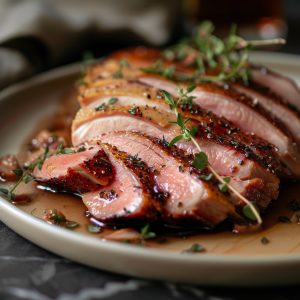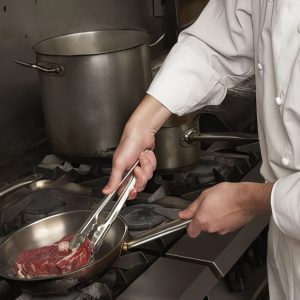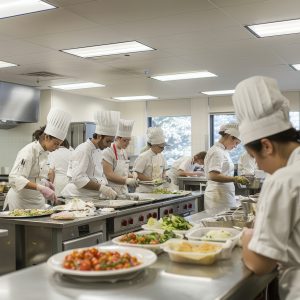How C-CAP Transforms High School Students into Future Culinary Stars
Culinary education in high school plays a crucial role in shaping future chefs, food entrepreneurs, and informed consumers. As the culinary arts continue to gain popularity, high school programs provide students with a unique opportunity to explore this dynamic field early on.
These programs go beyond teaching basic cooking skills; they delve into nutrition, food safety, and the science behind culinary techniques. Students learn about global cuisines, culinary history, and restaurant management principles, giving them a well-rounded foundation in the culinary arts.
High school culinary programs often include hands-on experience in fully-equipped kitchens, allowing students to practice their skills in a real-world environment. They also emphasize creativity and innovation, encouraging students to experiment with flavors and presentations.
Furthermore, these programs can lead to valuable certifications and college credits, leading students toward advanced culinary education or direct entry into the food industry. By integrating culinary education into high school curricula, we prepare students for potential careers in the culinary arts and equip them with essential life skills.
Understanding how to prepare healthy, delicious meals fosters a lifetime of good eating habits and a deeper appreciation for the food we consume. Whether aiming for a professional culinary career or simply wanting to enhance their cooking skills, students benefit immensely from these programs.
Benefits of Starting a Culinary Education in High School
Starting a culinary education in high school offers numerous advantages, setting the stage for professional success and personal enrichment. Here are some key benefits:
- Early Skill Development: High school culinary programs introduce students to fundamental cooking techniques, food safety, and kitchen management early on. This foundational knowledge is essential for anyone pursuing a culinary career and provides a head start compared to those who begin their education later.
- Career Exploration: These programs allow students to explore various culinary fields, from baking and pastry arts to restaurant management and nutrition. This exposure helps students identify their interests and strengths, guiding their future educational and career choices.
- Hands-On Experience: High school culinary programs often include practical, hands-on training in well-equipped kitchens. This real-world experience is invaluable, helping students build confidence and competence in a professional setting.
- College and Career Readiness: Many high school culinary programs offer certifications and college credits, giving students a competitive edge when applying to culinary schools or entering the workforce. These credentials can open doors to internships, scholarships, and job opportunities.
- Life Skills: Beyond professional training, culinary education teaches essential life skills such as meal planning, budgeting, and nutrition. These skills promote healthy eating habits and self-sufficiency, benefiting students throughout their lives.
- Creativity and Innovation: Culinary arts programs encourage creativity and experimentation, allowing students to develop their recipes and culinary styles. This creative freedom fosters innovation and can lead to exciting new culinary trends.
- Networking Opportunities: High school culinary programs often connect students with industry professionals, from guest chefs to local restaurateurs. These networking opportunities can lead to mentorships, apprenticeships, and future job placements.
- Teamwork and Leadership: Working in a kitchen requires collaboration, communication, and leadership. Students learn to work effectively as part of a team, developing interpersonal skills that are valuable in any career.
Starting a culinary education in high school provides a strong foundation for future success in the culinary world while imparting lifelong skills that enhance personal well-being and professional development.
C-CAP
Careers through Culinary Arts Program (C-CAP) is a nonprofit organization that provides underserved high school students with culinary education and career opportunities in the culinary arts. Founded in 1990 by Richard Grausman, C-CAP aims to bridge the gap between students and the food industry, offering various services and resources to help them succeed. Here’s how it works:
Program Components
- Culinary Education and Training:
- Curriculum Support: C-CAP collaborates with high schools to enhance their culinary programs by providing resources, professional development for teachers, and standardized curricula.
- Hands-On Training: Students participate in cooking competitions, culinary classes, and workshops focusing on practical skills, from basic cooking techniques to advanced culinary practices.
- Scholarships and Financial Assistance:
- Scholarships: C-CAP offers millions of dollars annually to help students pursue post-secondary culinary education at prestigious culinary schools and colleges.
- Financial Aid Guidance: The program assists students in navigating the financial aid process, ensuring they have access to the resources needed to fund their education.
- Job Training and Internships:
- Internships: C-CAP places students in internships at top restaurants, hotels, and other food service establishments, providing real-world experience and professional networking opportunities.
- Job Training: The program offers job readiness training, including resume writing, interview preparation, and workplace etiquette, to equip students with the skills needed to succeed in the workforce.
- Mentorship and Support:
- Mentorship: Industry professionals mentor students, offering guidance, support, and insights into the culinary field. These relationships help students build confidence and navigate their career paths.
- Alumni Network: C-CAP maintains a robust alum network, providing ongoing support and opportunities for graduates as they progress in their careers.
- Competitions and Recognition:
- Culinary Competitions: C-CAP organizes regional and national cooking competitions where students can showcase their skills, win scholarships, and gain recognition from industry leaders.
How It Works
- Partnership with Schools: C-CAP partners with high schools with culinary arts programs, particularly in underserved communities. They provide resources, support, and enhancements to existing programs to ensure high-quality culinary education.
- Student Engagement: Interested students enroll in their high school’s culinary arts program. C-CAP identifies talented students and offers additional training, competitions, and opportunities.
- Application for Scholarships and Internships: Students apply for C-CAP scholarships and internships. Selection is based on a combination of skill, dedication, and need.
- Ongoing Support: Throughout their high school education and beyond, C-CAP provides continuous support, mentorship, and networking opportunities to help students achieve their career goals.
Impact
C-CAP has positively impacted the lives of thousands of students by providing them with the education, resources, and opportunities needed to succeed in the culinary industry. Many graduates have become successful chefs, restaurateurs, and food service professionals, contributing to the diversity and innovation of the culinary world.
Is A Culinary Career Right For Me?















